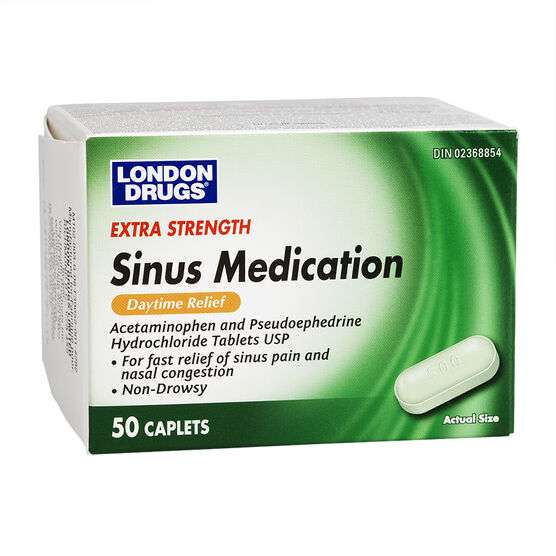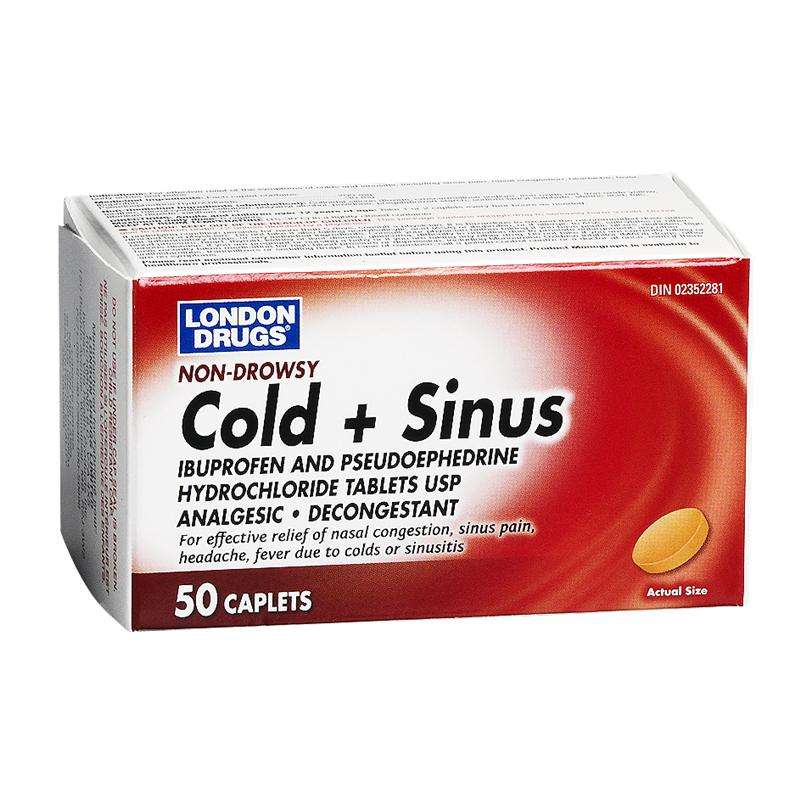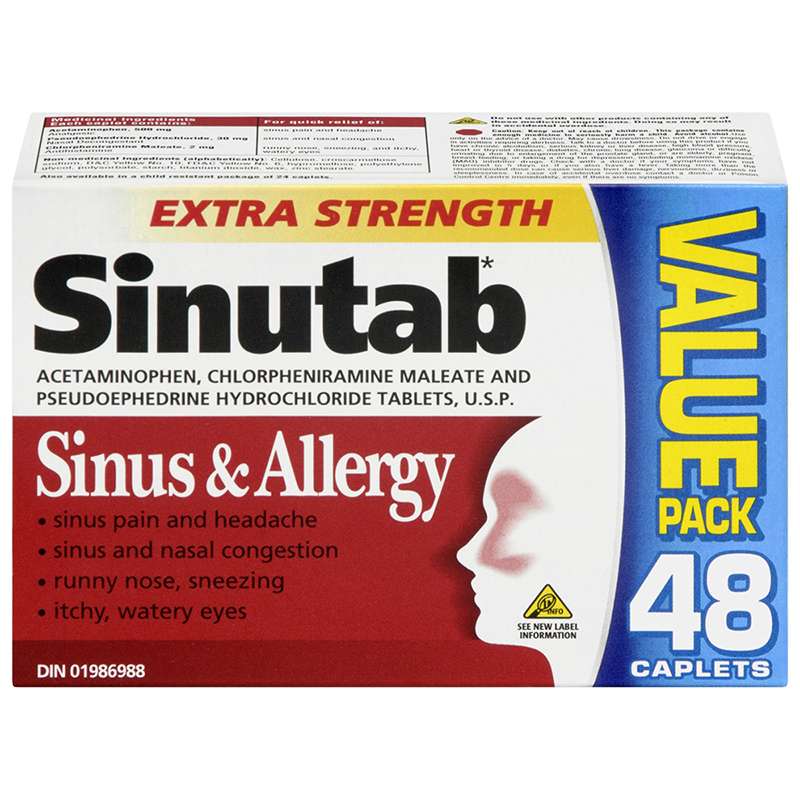What Medications Are Used To Treat Sinus Infections
Antibiotics:
First and foremost, if you are suffering from an active bacterial sinus infection you may be treated with antibiotics. Depending on whether you have acute sinusitis or chronic sinusitis will determine your course of therapy.As acute sinusitis may require 10 -14 days of antibiotic therapy chronic sinusitis may need to be treated for up to 30 days with medication.Remember Most cases of sinusitis are caused by viruses such as the common cold and will clear up within 10 or so days. In this case, antibiotics will not be helpful as antibiotics kill bacteria not viruses. Based upon your symptoms, medical history and physical examination your doctor will help determine if antibiotics are necessary.
Pain Medication:
Sinus headaches hurt. Sometimes the pain and pressure can make basic everyday activities impossible to do. So many times those suffering from sinusitis will take an over the counter medication such as acetaminophen or ibuprofen . Make sure to follow the labeled directions and see your doctor if your symptoms havent improved after a week or if they worsen.
Aerosolized antibiotics, steroids and antifugal treatments:
These may be administered through an aerosol or a nasal rinse. Frequently a compounding pharmacy is required to create this rinse.
Antihistamines:
Can I Prevent Sinusitis
There is no sure-fire way to prevent sinusitis. But there are some things that might help.
- Donât smoke, and avoid other people’s smoke.
- Wash your hands often, especially during cold and flu season, and try not to touch your face.
- Stay away from things you know youâre allergic to. Talk to your doctor to see if you need prescription medicines, allergy shots, or other forms of immunotherapy.
If your sinus problems keep coming back, ask your doctor about the pros and cons of surgery to clean and drain the sinuses.
What Is A Sinus Infection
A sinus infection, also known as sinusitis or rhinosinusitis, is a condition where the tissues lining the nasal passages become inflamed. Sinus infections are very common, affecting nearly 30 million people in the U.S. each year, and a large percentage of these infections resolve on their own. Common sinusitis symptoms include nasal congestion, sore throat, headache, and facial pain.
Simply explained, a sinus infection occurs when there is an infection in the sinuses, a connected system of air-filled spaces in the skull. Under normal conditions, mucus drains out so that air can pass through sinus cavities. When fluid builds up in the sinuses, germs grow and an infection can occur.
Sinus infections can cause facial discomfort because of nasal congestion. You may experience a headache, pain behind the eyes, and facial tenderness or swelling. Other sinus infection symptoms are similar to having a bad cold or intense allergies including nasal discharge, postnasal drip, fatigue, sinus pressure, loss of sense of smell, throat irritation, and even a fever.
Typically triggered by allergies or a cold, a sinus infection can take many forms. Acute sinusitis may cause mild symptoms and go away quickly without antibiotics. These cases are often caused by a viral infection like the common cold and do not require anything more than symptomatic treatment for your comfort.
Read Also: Can A Sinus Infection Clear Up On Its Own
When It Comes And When It Goes
If you have allergies, you’ll start feeling symptoms soon after you come into contact with the stuff you’re allergic to. Your symptoms keep up as long as you’re still surrounded by those triggers.
Allergies can happen any time of year. They may be “seasonal,” which means you get them only in the spring or fall. Or they may be year-round. For instance, you might be allergic to pets or mold, which can be a problem no matter the season.
Sinusitis usually happens after you’ve had a cold or allergies. But certain symptoms will keep going, even after your cold goes away. You’ll probably have a stuffy nose and cough for more than a week or two.
You may hear your doctor talk about two kinds of sinusitis: “acute” and “chronic.” There’s a simple way to tell them apart. If your symptoms last less than 4 weeks, it’s acute. If they go on for 3 months or longer, you have chronic sinusitis.
Treatments For Sinus Infections Other Than Antibiotics

#1: Saline Nasal Wash
Saline nasal wash can be a great way to thin out the mucous in the sinuses enough to clear out the blockage. I recommend starting this early on in the course of the illness to prevent the infection from worsening.
You can even make this at home using 2 cups of water and a 1/2 teaspoon of salt. I would add a 1/2 to 1 teaspoon of baking soda to prevent burning that can occur with use. There are also plenty of over the counter saline nasal sprays that you can purchase. You can use this 4-6 times per day.
#2: Vaporizer
Vaporizers are great because they can also thin out the mucous and make you feel a lot better. An easy home remedy, steam is probably the best way to use this treatment. Beware if you are an asthmatic as the steam could cause worsening of the asthma symptoms.
#3: Steroid Nasal Spray
Steroid nasal sprays such as Flonase have been my go to remedy recently and the great news is that they are now over the counter. The general recommendation is to use 1-2 sprays per nostril daily.
But I have found great relief using 2 sprays in each nostril twice daily. At these higher doses it is important to remember that you should use this short term, no more than 5-7 days.
These medications can significantly reduce inflammation allowing the congestion blockage to clear and significantly alleviate symptoms.
#4: Decongestants
#5: Guaifenesin
Guaifenesin such as Mucinex can certainly break up the mucous, allowing the congestion to clear more quickly.
You May Like: What Is Good To Take For Sinus Pressure
When Does Antibiotic Resistance Occur
Antibiotic resistance occurs in a persons own body and within the community when certain drugs no longer work for a specific type of germ. This can occur when bacteria change in response to exposure to antibiotics so that the antibiotics no longer work efficiently against the bacteria.
Therefore, allergists and other specialists recommend limiting the use of antibiotics unless:
- Symptoms last over seven to 10 days
- Specific symptoms are present
- A fever is present
What Is A Serious Sinus Infection Like
When sinus infections occur, theyre usually classified as either acute or subacute infections, meaning they go away in one to four weeks and are relatively minor.
The problem is chronic sinus infections, which often wont go away without intervention. If your sinus infection is persisting for longer than a month, and the symptoms are only getting worse, you may be suffering from chronic sinusitis. At that point, the infection is most likely bacterial, and your body will need the help of antibiotics to purge it.
Its very important to consult a healthcare professional before considering antibiotics, not only because youll require a prescription from a licensed doctor but because taking antibiotics more often than needed isnt good for your natural bacteria levels.
Also Check: Medicine For Sinus Infection Otc
Why Are Antibiotics Important
Antibiotics are one of the most common classifications of drugs used to treat bacterial infections. Since their introduction to the world of medicine, they have helped treat countless people, especially those with infectious diseases.
Antibiotics are very crucial during surgeries and are used to prevent patients from getting any infections from the cut. Without antibiotics, there is a higher chance of blood poisoning and the more complicated surgeries would not be possible to perform.
Sinus Infection Treatment Options
There are many treatment options for a sinus infection, but the best treatment option varies by the severity of the case. Some acute sinus infections will clear up on their own without any treatment, and you may just think it was a cold. Others require more serious interventions by a healthcare provider.
The standard treatment healthcare providers prescribe for a presumed bacterial sinus infection is an antibiotic. However, if you have a sinus infection caused by a viral infection such as the common cold, your doctor will not prescribe antibiotics as these medications only treat bacterial infections. Instead, you can treat the sinus infection symptomatically until it resolves, with nasal decongestants and antihistamines.
There are plenty of ways to treat symptoms of a sinus infection at home with over-the-counter medications and home remedies. OTC antihistamines block the effects of histamine, helping symptoms like sneezing and runny nose. Simple treatments like drinking water, keeping your sinuses hydrated , and using warm compresses, can also help treat symptoms of a sinus infection.
Keeping your nasal passages clean can help you prevent future sinus infections. If you anticipate having sinus issues during allergy or cold season, flushing out your nasal passages with a saltwater solution can help you avoid the pains of a sinus infection.
Read Also: How To Stay In Sinus Rhythm After Cardioversion
How Is Sinus Infection Diagnosed
Diagnosis depends on symptoms and requires an examination of the throat, nose and sinuses. Your allergist will look for:
- Redness
- Discolored nasal discharge
- Bad Breath
If your sinus infection lasts longer than eight weeks, or if standard antibiotic treatment is not working, a sinus CT scan may help your allergist diagnose the problem. Your allergist may examine your nose or sinus openings. The exam uses a long, thin, flexible tube with a tiny camera and a light at one end that is inserted through the nose. It is not painful. Your allergist may give you a light anesthetic nasal spray to make you more comfortable.
Mucus cultures: If your sinus infection is chronic or has not improved after several rounds of antibiotics, a mucus culture may help to determine what is causing the infection. Most mucus samples are taken from the nose. However, it is sometimes necessary to get mucus directly from the sinuses.
Knowing what kind of bacteria is causing the infection can lead to more effective antibiotic therapy. A fungus could also cause your sinus infection. Confirming the presence of fungus is important. Fungal sinus infection needs to be treated with antifungal agents, rather than antibiotics. In addition, some forms of fungal sinus infection allergic fungal sinus infection, for example do not respond to antifungal agents and often require the use of oral steroids.
Which Types Of Doctors Treat Sinusitis And Sinus Infections
- Many sinus infections can be treated by your primary care physician or an Internal Medicine doctor.
- However, it is not unusual to consult an ENT specialist,
- Infectious disease specialist,
- Allergist or Immunologist.
Read Also: Can Sinus Infection Cause Ear Pain
Check If You Have Sinusitis
Sinusitis is common after a cold or flu.
Symptoms of sinusitis include:
- pain, swelling and tenderness around your cheeks, eyes or forehead
- a blocked nose
- a reduced sense of smell
- green or yellow mucus from your nose
- a sinus headache
- toothache
- bad breath
Signs of sinusitis in young children may also include irritability, difficulty feeding, and breathing through their mouth.
The sinuses are small, empty spaces behind your cheekbones and forehead that connect to the inside of the nose.
Sinusitis causes the lining of the sinuses to swell up.
This stops mucus draining into your nose and throat properly, making you feel blocked up.
Sinus Infection Medication For Viral Causes

Viral sinus infections are usually a symptom of the common cold or other viruses. When these viruses take a toll on your body, they sometimes spread to your sinuses and cause inflammation over time.
While you may be able to fend off a full-blown sinus infection with over-the-counter solutions, once youre at a certain point of inflammation, you might require stronger meds that only a doctor can prescribe.
You May Like: Does A Sinus Infection Require Antibiotics
Ayr Saline Nasal Gel With Soothing Aloe
For buyers looking for something that doesnt have too much of a menthol scent, Ayr Saline Nasal Gel with Soothing Aloe is the best over the counter medicine for a sinus infection. This natural product incorporates a high concentration of aloe, which works well to soothe irritated nasal tissues to help relieve discomfort.
What many users love about Ayr Saline Nasal Gel with Soothing Aloe is that its long-lasting and easy to use. A single application around the nasal cavity and nostrils can provide lasting relief for up to 6 hours, making it the ideal solution for those who do not want to keep applying throughout the day. It is also ideal for use before bedtime, working well to keep the sinuses clear while you snooze.
How Do You Get Rid Of A Sinus Infection Fast
You can treat a sinus infection at home or with OTC medications for symptom relief, and/or a prescription antibiotic medication, in the case of a bacterial infection. Stay hydrated, use a humidifier, and sleep at an incline to help resolve your sinus infection quickly. Consult your healthcare provider to see if you need an antibiotic.
Recommended Reading: How To Get Tested For Sinus Infection
Can Sinus Infections Or Sinusitis Be Prevented
Currently, there are no vaccines designed specifically against infectious sinusitis or sinus infections. However, there are vaccines against viruses and bacteria that may cause some infectious sinusitis. Vaccination against pathogens known to cause infectious sinusitis may indirectly reduce or prevent the chance of getting the disease however, no specific studies support this assumption. Fungal vaccines against sinusitis are not available, currently.
If you are prone to recurrent bouts of a “yearly sinus infection” it may be important to consider allergy testing to see if this is the underlying cause of the recurring problem. Treatment of the allergy may prevent secondary bacterial sinus infections. In addition, sinus infections may be due to other problems such as nasal polyps, tumors, or diseases that obstruct normal mucus flow. Treatment of these underlying causes may prevent recurrent sinus infections.
How You Can Treat Sinusitis Yourself
You can often treat mild sinusitis without seeing a GP by:
- getting plenty of rest
- taking painkillers, such as paracetamol or ibuprofen
- avoiding allergic triggers and not smoking
- cleaning your nose with a salt water solution to ease congestion
You do not need to use all of the solution, but make a fresh solution each time you clean your nose.
Don’t Miss: Ways To Ease Sinus Pain
Dont Rush To Antibiotics
The sinuses are small, hollow spaces inside the head. They drain into the nose. The sinuses often cause problems after a cold. They can also cause problems if they get blocked up from hay fever and other allergies. The medical name for sinus problems is sinusitis.
Sinus problems can be very uncomfortable. You may feel stuffed up. You may have yellow, green, or gray mucus. And you may feel pain or pressure around your eyes, cheeks, forehead, or teeth.
Each year, millions of people use antibiotic drugs to treat sinus problems. However, they usually do not need antibiotics. Heres why:
What Are The Six Types Of Sinusitis And Sinus Infections
Sinusitis may be classified in several ways, based on its duration and the type of inflammation . The term rhinosinusitis is used to imply that both the nose and sinuses are involved and is becoming the preferred term over sinusitis.
- Acute sinus infection usually lasts less than 3-5 days.
- Subacute sinus infection lasts one to three months.
- Chronic sinus infection is greater than three months. Chronic sinusitis may be further sub-classified into chronic sinusitis with or without nasal polyps, or allergic fungal sinusitis.
- Recurrent sinusitis has several sinusitis attacks every year.
There is no medical consensus on the above time periods.
- Infected sinusitis usually is caused by an uncomplicated virus infection. Less frequently, bacterial growth causes sinus infection and fungal sinus infection is very infrequent. Subacute and chronic forms of a sinus infection usually are the result of incomplete treatment of an acute sinus infection.
- Noninfectious sinusitis is caused by irritants and allergic conditions and follows the same general timeline for acute, subacute, and chronic as infectious sinusitis.
Don’t Miss: Is Dizziness A Symptom Of Sinus Infection
What About A Ct Scan
A CT scan is a series of X-rays. It gives your doctor a picture of your sinuses. Some doctors recommend a CT scan when you have a sinus problem. But usually you do not need a CT scan. Generally, you only need a CT scan if you have sinus problems often, or if you are thinking about having sinus surgery.
This report is for you to use when talking with your healthcare provider. It is not a substitute for medical advice and treatment. Use of this report is at your own risk.
04/2012
Using The Right Water During Saline Rinses

When using saline nasal rinses, tap water should always be boiled and then allowed to cool to ensure cleanliness distilled water or premixed solutions could also be used instead of regular tap water.
Other home remedies for sinus infections include:
- Drinking fluids: Drinking lots of fluids helps loosen and thin mucus. Avoid beverages that are caffeinated and alcoholic beverages that can dehydrate the body, which could thicken mucus.
- Breathing steam: Warm water is best . You can breathe in steam from either a bowl or shower.
- Humidifying the air: Use a cool air vaporizer or humidifier,particularly at night while sleeping.
- Avoiding environmental substances: Avoid tobacco smoke and chlorinated water that can dry up the mucus membranes and exacerbate symptoms.
- Implementing treatment measures: At the first sign of infection, use antihistamines and employ regular nasal rinses.
You May Like: The Best Antibiotic For Sinus Infection